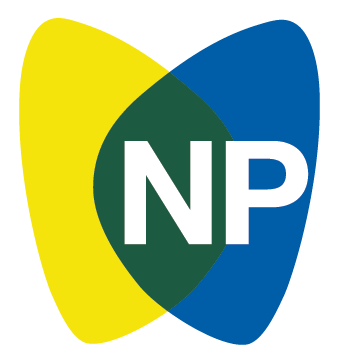Expert Advice

Disclaimer: The information provided is for educational purposes only and does not substitute professional medical advice. Consult a medical professional or healthcare provider before beginning any exercise, fitness, diet, or nutrition routine.
Risk factors for hypothyroidism include:1-4
More common in women than in men
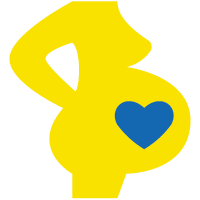
Pregnancy & post-partum thyroiditis may occur after the delivery of a baby

Family history of hypothyroidism

Increased risk with age, especially in people over 60
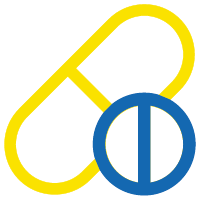
Autoimmune diseases such as Hashimoto’s Thyroiditis
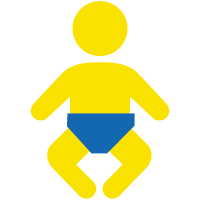
Congenital hypothyroidism underdeveloped or absent thyroid at birth

Central Hypothyroidism – pituitary gland problems that damage cells that secrete TSH
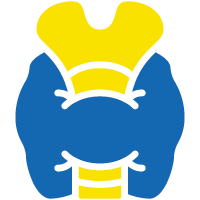
History of thyroid surgery

Medications such as lithium, sulfonamides, high doses of iodine & amiodarone

Radioactive iodine treatment
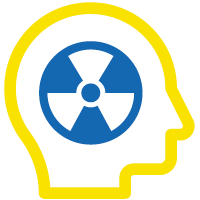
Radiation treatment to the head or neck area
Download & Print Hypothyroidism Risk Factors
REFERENCES: 1. Hormonal Health Network. Hypothyroidism Fact Sheet. N.p.: Hormonal Health Network, n.d. Hormone. Endocrine Society. Updated November, 2019. Accessed June 15, 2021. https://www.hormone.org/diseases-and-conditions/hypothyroidism
2. American Association of Clinical Endocrinology. Hypothyroidism. Updated December, 2016. Accessed June 15, 2021. https://www.thyroidawareness.com/hypothyroidism 3. Baskin HJ, Cobin RH, Duick DS,
et al. American Association of Clinical Endocrinologists medical guidelines for clinical practice for the evaluation and treatment of hyperthyroidism and hypothyroidism. Endocr Pract. 2002;8(6):458-467. http://www.mythyroid.com/documents/AACE%20Thyroid%20Guideslines-%202002.pdf
4. Vandenpump MPJ. The epidemiology of thyroid disease. Br Med Bull. 2011;99:39-51. doi: 10.1093/bmb/ldr030
More common in women than in men
Pregnancy & post-partum thyroiditis may occur after the delivery of a baby
Family history of hypothyroidism
Increased risk with age, especially in people over 60
Autoimmune diseases such as Hashimoto’s Thyroiditis
Congenital hypothyroidism underdeveloped or absent thyroid at birth
Central Hypothyroidism – pituitary gland problems that damage cells that secrete TSH
History of thyroid surgery
Medications such as lithium, sulfonamides, high doses of iodine & amiodarone
Radioactive iodine treatment
Radiation treatment to the head or neck area
Note that DTE products, including NP Thyroid®, have not been reviewed by the FDA for safety or efficacy.
IMPORTANT RISK INFORMATION, INCLUDING BOXED WARNING & INDICATIONS
Important Risk Information
Drugs with thyroid hormone activity, alone or together with other therapeutic agents, have been used for the treatment of obesity. In euthyroid patients, doses within the range of daily hormonal requirements are ineffective for weight reduction. Larger doses may produce serious or even life-threatening manifestations of toxicity, particularly when given in association with sympathomimetic amines such as those used for their anorectic effects.
- NP Thyroid® is contraindicated in patients with uncorrected adrenal insufficiency, untreated thyrotoxicosis, and hypersensitivity to any component of the product.
- In the elderly and in patients with cardiovascular disease, NP Thyroid® should be used with greater caution than younger patients or those without cardiovascular disease.
- Use of NP Thyroid® in patients with diabetes mellitus or adrenal cortical insufficiency may worsen the intensity of their symptoms.
- The therapy of myxedema coma requires simultaneous administration of glucocorticoids.
- Concomitant use of NP Thyroid® with oral anticoagulants alters the sensitivity of oral anticoagulants. Prothrombin time should be closely monitored in thyroid-treated patients on oral anticoagulants.
- In infants, excessive doses of NP Thyroid® may produce craniosynostosis.
- Partial loss of hair may be experienced by children in the first few months of therapy but is usually transient.
- Adverse reactions associated with NP Thyroid® therapy are primarily those of hyperthyroidism due to therapeutic overdosage.
- Many drugs and some laboratory tests may alter the therapeutic response to NP Thyroid ®. In addition, thyroid hormones and thyroid status have varied effects on the pharmacokinetics and actions of other drugs. Administer at least 4 hours before or after drugs that are known to interfere with absorption. Evaluate the need for dose adjustments when regularly administering within one hour of certain foods that may affect absorption.
- NP Thyroid® should not be discontinued during pregnancy, and hypothyroidism diagnosed during pregnancy should be promptly treated.
Indications
NP Thyroid® (thyroid tablets, USP) is a prescription medicine that is used to treat a condition called hypothyroidism from any cause, except for cases of temporary hypothyroidism, which is usually associated with an inflammation of the thyroid (thyroiditis). It is meant to replace or supplement a hormone that is usually made by your thyroid gland.
NP Thyroid® is also used in the treatment and prevention of normal functioning thyroid goiters, such as thyroid nodules, Hashimoto’s thyroiditis, multinodular goiter, and in the management of thyroid cancer.
Revised
10/2023
You Are About To Leave This Website
By clicking continue, this link will take you to a website to which Alora Pharmaceuticals’ Policies & Terms of Use do not apply.
